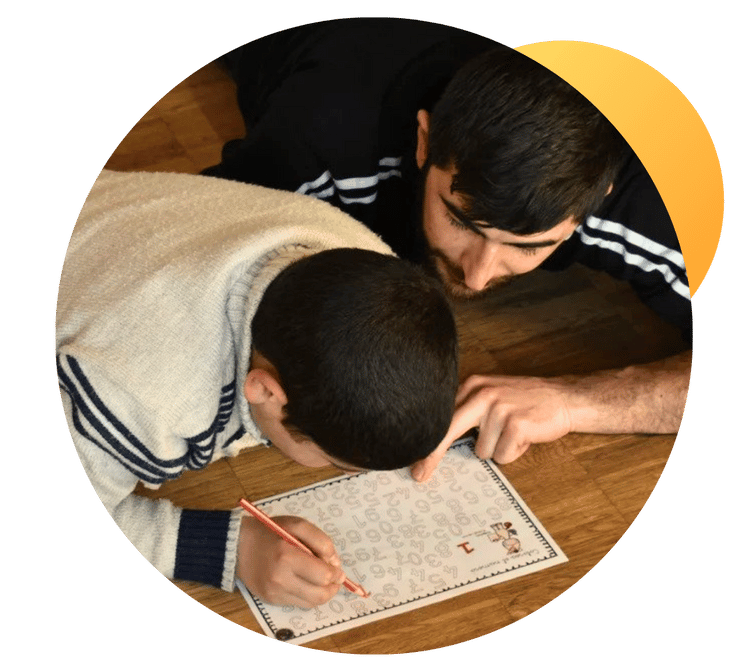Through a mother's eyes
Eduard, age 24, has been a part of the Aregak family since its first days in 2008. In the picture above, he was nine years old. When Aregak first opened, it was a daycare center for kids with disabilities that operated out of an old stone house in downtown Gyumri. It wasn’t very comfortable or accessible, but it was filled with a lot of love.

A: When did you learn about Mkhitar’s autism diagnosis and what were the initial signs you noticed?
H: Mkhitar’s struggles became evident around age two and a half. He faced concentration issues, lacked eye contact, and displayed restlessness. Concerns arose over his non-responsiveness and nonverbal nature. Despite various medical consultations, an accurate diagnosis eluded us until he turned four, when we learned he was on the autism spectrum.
A: What challenges arose upon discovering his diagnosis, and how has life been as a mother of a child on the spectrum?
H: Mkhitar’s autism diagnosis left me bewildered and heartbroken. Balancing his unique needs was overwhelming, especially contemplating his integration into school and society. Sacrifices in my job and social life were necessary to prioritize his growth. Amidst the struggle, I aimed to be a pillar of strength, showering Mkhitar with love and reminding him of his uniqueness. Our journey has been filled with challenges, yet Emili Aregak has been a beacon of hope.
A: How did you discover Emili Aregak, and when did Mkhitar begin his journey there?
H: Our connection to Aregak started in 2013 in the modest space of the first centre, which was located in an old house. Soon, news reached us that a new center was being built. We eagerly joined the waiting list. Mkhitar’s involvement began in 2015.
A: Could you outline Mkhitar’s struggles due to autism and highlight personal breakthroughs through therapy at Emili Aregak?
H: Initially restless and uncommunicative, Mkhitar faced self-harm tendencies and aggressive outbursts. Emili Aregak’s dedicated team, notably therapist Tigran and psychologist Kara, orchestrated his transformation. A blend of therapies—play, music, speech, and psychology—alongside physiotherapy led to tangible progress. Structured routines, behavior techniques, and therapeutic activities fostered self-control. Notably, music therapy improved speech, evident in his prompt actions like putting back a fork.
A: Describe Mkhitar and envision his future.
H: Mkhitar is an exceptional boy, blessed with a photographic memory and perceptive nature. He’s sincere in his responses, able to discern genuine warmth. Mkhitar exhibits a unique sense of guilt and thrives on learning through videos and games. My aspiration is for him to attain self-sufficiency, navigate life’s challenges, and fulfill his potential. With dedication and determination, I’m confident Mkhitar will carve a path of success.”
